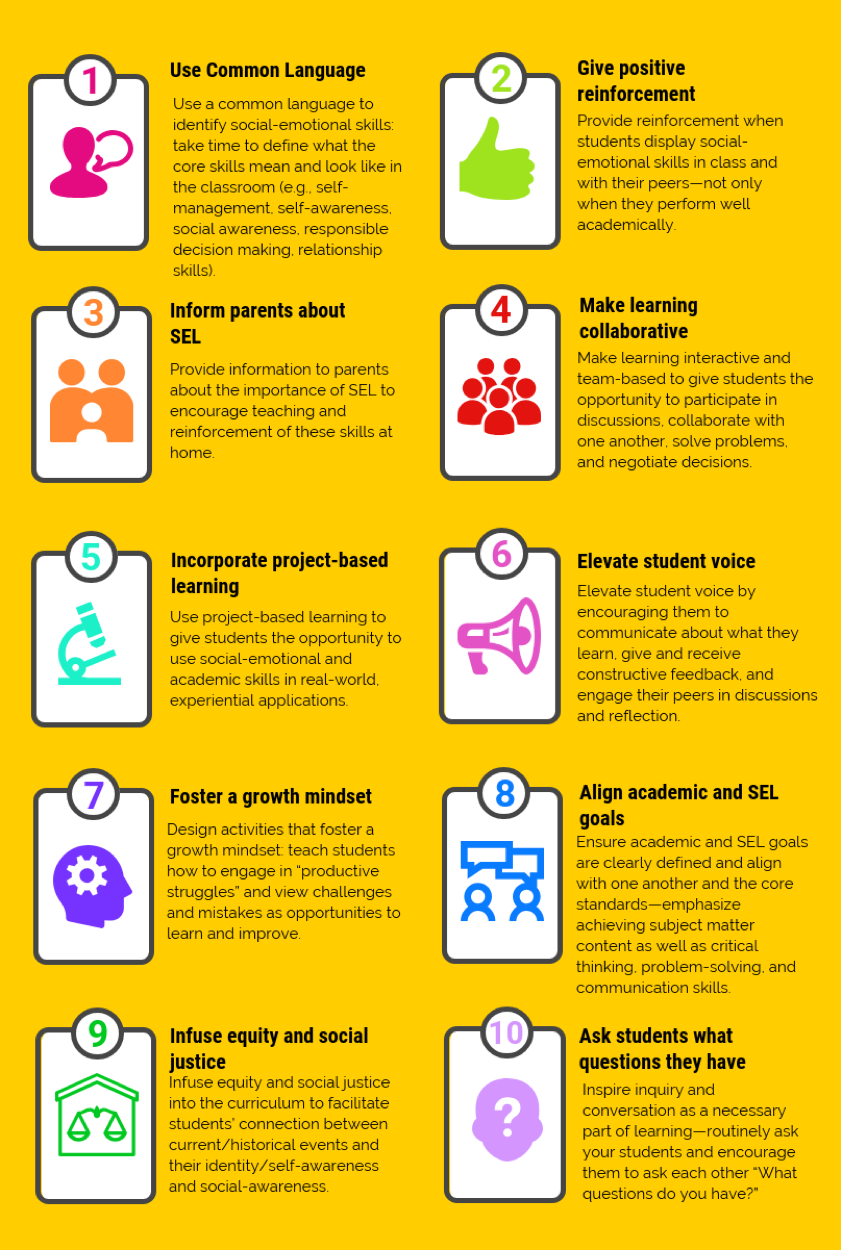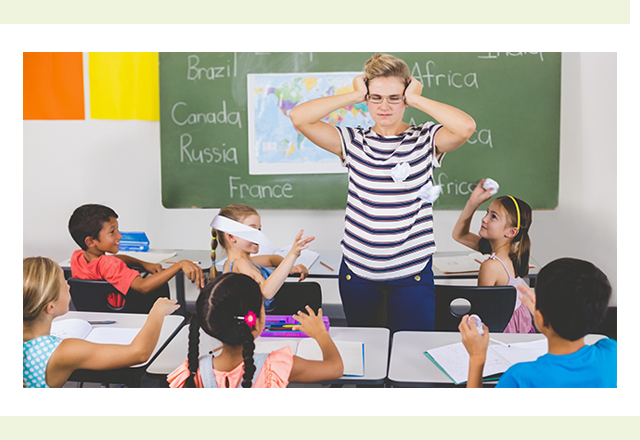What strategies can educators use to facilitate safe and meaningful discussions on race, racial (in)justice and racism? This toolkit from Learning for Justice (formerly Teaching Tolerance) offers specific strategies, as well as tips for managing student responses, in order to create a safe environment for difficult conversations. https://www.learningforjustice.org/magazine/spring-2015/toolkit-for-talking-about-racism-and-police-violence-with-students
Although most teachers recognize the importance of teaching social-emotional skills, many are also concerned about having time to fulfill their other responsibilities. Here we highlight one approach to teaching social-emotional skills in the classroom: incorporating social-emotional learning (SEL) into everyday academic instruction.
To successfully navigate their school and home lives, students need more than just academic skills. Learning social-emotional skills can benefit all students. Social problem-solving is one social-emotional skill that can help all students in a classroom learn to better manage their emotions and behaviors, cooperate and communicate with peers, and make safer, more responsible decisions.



